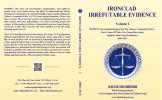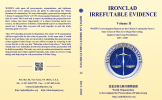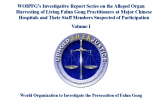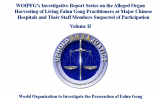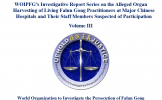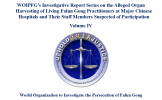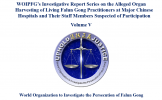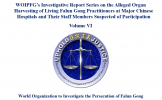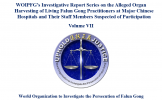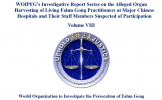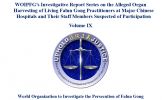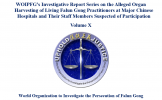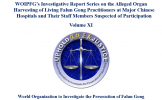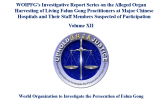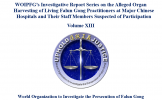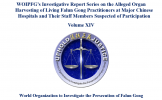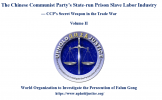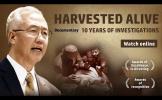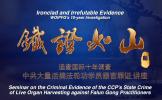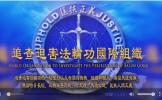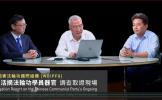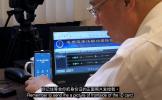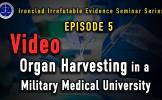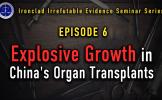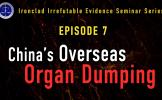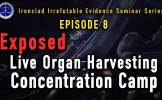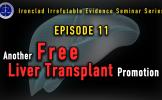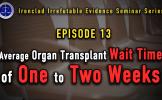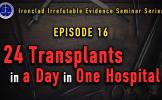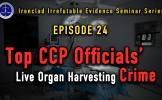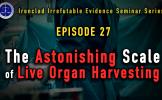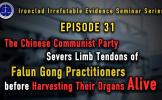Wang Keming

Abstract: Wang Keming, male, chief physician, professor (phone: 13820847108). Formerly the director of the Urology Department at Tianjin Third Central Hospital, and a member of the Tianjin Branch of the Chinese Medical Association for Organ Transplantation. He was among the earliest in Tianjin to perform kidney transplant surgeries. In 2000, Wang Keming served as the deputy director of the Dialysis Transplant Center, mainly responsible for the nephrology work, especially kidney transplantation. After the Urology Department became independent, Wang Keming served as its director, focusing on kidney transplant. Given the broader context of the Chinese Communist Party's national crime of live organ harvesting from Falun Gong practitioners, Tianjin is one of the most severe areas involved in organ harvesting, with Tianjin First Central Hospital being the unit most involved in promoting and conducting organ transplants nationwide. In the same regional and systemic context, Tianjin Third Central Hospital is implicated, making Wang Keming, as director of the Urology Department, a person of interest in these allegations.
Wang Keming, male, chief physician, professor, was the director of the Urology Department at Tianjin Third Central Hospital, and a member of the Tianjin Branch of the Chinese Medical Association for Organ Transplantation. He specializes in kidney transplantation and was among the first in Tianjin to perform kidney transplant surgeries. Tianjin Third Central Hospital, originally named Tianjin Hedong Hospital, is a comprehensive tertiary first-class hospital integrating medical treatment, teaching, research, and prevention.
1. In 2000, Wang Keming served as the deputy director of the Dialysis Transplant Center, primarily responsible for the nephrology work, particularly kidney transplantation.
The Dialysis Transplant Center is a municipal high-tech base. It is equipped with international advanced blood purification equipment, providing various forms of blood purification technologies, and uses continuous renal replacement therapy to rescue critically ill patients, increasing the success rate. Techniques such as hemodiafiltration, hemoperfusion, immunoabsorption, and plasma exchange are widely applied in clinical departments like ICU, hepatology, and hepatobiliary surgery.
In January 2000, the Tianjin Third Central Hospital Dialysis Transplant Center was officially established. It is a comprehensive center integrating nephrology, urology, and a blood purification center, offering integrated treatment from early kidney disease to end-stage renal disease (uremia) blood purification and kidney transplantation. Wang Keming was appointed as the deputy director, mainly responsible for the urological work, especially kidney transplantation. The urology department has 4 doctors, and the hospital has assigned a dedicated lab technician and a specialized laboratory for kidney transplantation. Under the leadership of Director Wang Keming, kidney transplant surgeries were initiated in Tianjin, and an independently researched method for simplifying fluid replenishment during the polyuric phase post-kidney transplant was developed. From October 1999 to July 2002, 395 kidney transplant donors and recipients were matched at the Tianjin Central Blood Station.
2. In 2003, after the independence of the Urology Department, Wang Keming served as the director of the Urology Department.
In October 2003, all hospital wards gradually moved into the new building, and the Urology Department became independent. Wang Keming served as the Director of the Urology Department. Under the leadership of Director Wang Keming, the Urology Department of Tianjin Third Central Hospital has been performing kidney transplant surgeries in Tianjin for nearly ten years. From October 2004 to October 2006, the hospital conducted 47 cases of allogeneic kidney transplants.
3. The number of death row inmates cannot account for the number of organ transplants in Tianjin.
According to Amnesty International's records, China's annual number of executions averaged 1,680 prisoners between 1995 and 1999. Between 2000 and 2005, the average was 1,616 per year. These figures fluctuate annually, but the overall average has remained consistent before and during the persecution of Falun Gong.
In 2007, Huang Jiefu, former Vice Minister of Health, stated that the death penalty was to be reviewed by the Supreme Court, and "in recent years, the annual number of executions has been decreasing by multiples."
In July 2018, during an interview with CCTV, Huang Jiefu mentioned that the quality of organs from executed prisoners is very poor, the requirements for organ sources are very strict, and such organs could not be obtained at the execution site.
The vast discrepancy between the number of transplant surgeries and the number of executed prisoners in Tianjin suggests that there must be other sources of organs.
4. Medical papers indicate that hospitals in Tianjin are suspected of live organ harvesting
China has no legislation on brain death nor a standard for diagnosing brain death, and there is no well-established organ donation system. Therefore, the concept of a "brain-dead donor" or "brain-death donation" barely exists.
On July 11, 2006, “People's Daily Online” published an article titled “China's First Heart Donation Transplant Successful,” stating, “On July 1, 2006, China successfully implemented the 18th case of voluntary organ donation from brain-dead individuals, marking the first successful heart transplant from a brain-dead donor.” Professor Chen Zhonghua told reporters that up to that point, China had successfully accepted 18 cases of voluntary organ donation from brain-dead individuals.
On August 22, 2014, “Tencent News” published an article “Legislative Blank on Brain Death in China, 90% of Doctors Unclear on Identification Standards”: Currently, over 80 countries worldwide have included brain death in their legal definition of death, but China has no such legislation yet.
“Journal of Tianjin Nursing” published an article in April 2008 about Tianjin First Central Hospital, stating, “From 2002 to 2006, a total of 2,195 liver transplant surgeries were completed, with 2,500 livers procured from deceased donors, all tested negative for hepatitis series, syphilis, and HIV, indicating healthy donors, with procurement performed after brain death.” During the period from 2002 to 2006, it would be impossible for Tianjin to have so many death row inmates. Without legislation on brain death, the procurement of 2,500 livers post-brain death by Tianjin First Central Hospital during this period was illegal. The paper shows that the number of donors exceeds the number of procurements, which in turn exceeds the number of transplants. Furthermore, whether an organ is usable is determined after opening the donor's abdomen. For livers that have already been removed, there are also “intraoperative laboratory tests” performed on site, the results of which directly determine whether to keep the liver. Although the title of the paper refers to “cadaveric livers,” all livers had a warm ischemia time within 10 minutes, procurement time within 30 minutes, and cold ischemia time within 12 hours. This suggests that the “procurement after brain death” described at the beginning of the paper might involve transporting living individuals to the procurement site, leading to the donor's death during the procurement process.
5. After 1999, organ transplants in Tianjin saw explosive growth
Official data shows:
In May 1994, after returning from Japan, Shen Zhongyang, the director of Tianjin First Central Hospital, completed the first orthotopic liver transplant. In September 1998, he returned to Tianjin First Central Hospital, established the organ transplant department, and by the end of the year, performed 7 liver transplants. From 1994 to 1998, Tianjin First Central Hospital took 5 years to complete 8 liver transplants.
Starting in 2000, liver and kidney transplants became routine clinical surgeries at Tianjin First Central Hospital, with transplant numbers exploding. In 1999, there were 24 liver transplants. According to North Net, which is affiliated with the Tianjin government, in the two years starting from 2000, the total number of liver transplants by Shen Zhongyang's team increased from 24 to 209; and it only took one year in 2003 to increase from 209 to 1,000.
By the end of 2005, a patient's family member revealed to “Phoenix Weekly” that the transplant center had performed up to 24 liver and kidney transplants in a single day.
By the end of 2009, Tianjin First Central Hospital had completed over 3,300 liver transplant surgeries, 2,357 kidney transplant surgeries, and 31 combined pancreas-kidney transplants. According to the “China Liver Transplant Registry (CLTR)” report: by the end of 2010, the teams led by Shen Zhongyang at Tianjin First Central Hospital and the Armed Police General Hospital had completed 6,270 liver transplants.
On December 10, 2014, “Science and Technology Daily” in mainland China reported that by December 2014, Shen Zhongyang's number of liver transplants had exceeded ten thousand.
After 2006, the annual number of liver and kidney transplants at Tianjin First Central Hospital alone reached between 5,000 to 8,000 cases.
The new building of the hospital's organ transplant center officially opened on September 1, 2006, with over 500 beds. (Other reports indicate that by this time, the number of beds had already reached 700. )
Bed occupancy rate: 90-131.1%. (The average bed occupancy rate for tertiary hospitals in China in 2013 was 103%)
The average hospital stay for liver transplants: 25-30 days (the average hospital stay for kidney transplants in China is 30 days). Based on the number of beds and turnover rate, the hospital's actual number of liver transplant surgeries per year exceeds 5,000, with a peak reaching 8,000 per year.
The annual transplant surgery volume is calculated as follows:
Annual transplant volume: 5,475 cases (500 beds × 365 days × 90% occupancy / 30 days), calculated at a 90% bed occupancy rate with a 30-day hospital stay.
Annual transplant volume: 7,975 cases (500 beds × 365 days × 131.1% occupancy / 30 days), calculated at a 131.1% bed occupancy rate with a 30-day hospital stay.
Annual transplant volume: 8,544 cases (500 beds × 365 days × 131.1% occupancy / 28 days), calculated at a 131.1% bed occupancy rate with a 28-day hospital stay.
Each year, the actual number of surgeries exceeds 5,000, with peak periods reaching 8,000 per year.
6. Telephone Investigation Reveals: The Main Source of Organs for Transplants in Tianjin City is Falun Gong Practitioners
Based on reports from Chinese Communist Party’s media and publicly disclosed information from the transplant center's website, the high number of transplants at “Tianjin First Central” raises questions about the CCP's explanation of organ sources. Without a donation system, the organs used for transplants at the hospitals are certainly not all from death row inmates. The main source of organs for transplants in Tianjin City is Falun Gong practitioners.
In 2006, a kidney transplant director and in 2018, an assistant to Director Shen, admitted to using organs from Falun Gong practitioners.
Examples from telephone investigations: In 2006, the transplant director, and in 2018, the assistant to the hospital director, both admitted to using organs from Falun Gong practitioners.
Subject of Investigation: Bai Rongsheng, liver transplant doctor and assistant to Director Shen Zhongyang at Tianjin First Central Hospital
Date of Investigation: November 15, 2018 (+86-13803019898)
Summary of Content:
Investigator: The liver sources, the donors are generally quite healthy, right? The healthy ones from Falun Gong, right?
Bai Rongsheng: Right, right, yes.
(Audio 1 playback and MP3 download, full transcript available in pdf 10 )
Personal Profile: Bai Rongsheng is an assistant to Shen Zhongyang, as well as a liver transplant surgeon. Shen Zhongyang is the director of the Liver Transplantation Research Institute of the Third Medical Center of the People’s Liberation Army General Hospital (formerly the Armed Police Force General Hospital), the director of the Oriental Organ Transplantation Center (Tianjin), chief physician, professor and PhD students’ supervisor.
Subject of Investigation: Song Wenli, Director of Kidney Transplants at Tianjin First Central Hospital
Date of Investigation: March 15, 2006 (+86-13920128990)
Summary of Content:
Investigator: Is this Director Song from Tianjin First Central Hospital?
Song Wenli: Ah, go ahead!
Investigator: ...His doctor told him the kidney source is quite good, he practices qigong. When asked what kind of qigong, he said Falun Gong, you know people who practice Falun Gong are generally in good health~ [interjected by the other party]
Song Wenli: Of course! We have such cases here too. We also have what are called donors with breathing or heartbeat, we have had, this year up to now, probably about a dozen such kidneys.
(Audio 2 playback and MP3 download, transcript available in PDF Addendum)
Brief Introduction to Song Wenli: Director of Kidney Transplants at Tianjin First Central Hospital Organ Transplant Center, member of the Chinese Medical Association Organ Transplantation Branch, member of the Tianjin Medical Association Organ Transplantation Branch, completed approximately over 2,000 kidney transplants.
Reference
1People.com: China's Success in First Heart Donation Transplant-- the donor was the 18th brain-dead organ donor in China" July 11, 2006
Link to WOIPFG Files:
http://www.zhuichaguoji.org/cn/images/medicalarticles/22.png
2 Tencent.com News: China's Brain Death Legislation Blank 90% of Doctors Don't Know the Identification Standards August 22, 2014
Link to WOIPFG Files:
http://www.zhuichaguoji.org/cn/images/medicalarticles/10.png
3 Gao, Ying and Liu Yanying. “Surgical Cooperation for Cadaveric Liver Extraction in Orthotopic Liver transplantation” Tianjin Journal of Nursing. April 2008, Vol. 16, Issue No. 2. WOIPFG archived link: http://www.zhuichaguoji.org/cn/images/medicalarticles/160.pdf
4 WOIPFG. “Evidence of Live Organ Harvesting of Falun Gong Practitioners Collected from Chinese Medical Papers”. October 13, 2014 first published, January 2, 2016 updated. http://www.upholdjustice.org/node/263
5 Gao, Ying and Liu Yanying. “Surgical Cooperation for Cadaveric Liver Extraction in Orthotopic Liver transplantation” Tianjin Journal of Nursing. April 2008, Vol. 16, Issue No. 2. WOIPFG archived link: http://www.zhuichaguoji.org/cn/images/medicalarticles/160.pdf
6 Baike. “Organ transplant tourism.” WOIPFG archived webpage: http://www.zhuichaguoji.org/cn/images/nationalcriminalreports/17.png (December 24, 2015)
7 People.com.cn. “He brought liver transplantation technologies to the pinnacle of world medicine”. December 8, 2014. https://drive.google.com/file/d/0ByxwXcZlX2dXQzhJbi1HUXhheXZWU09hTlc3N3g1ZjZvRVZj/view Archived webpage: http://archive.is/jOh1m
8 ENorth Netnews. “Tianjin First Central Hospital Becomes the World's Largest Liver Transplant Center.” November 29, 2004. Archived webpage: http://web.archive.org/web/20190515053549/http://www.hbver.com/Article/… (May 15, 2019)
9 www.transplantation.org.cn. “Brief Introduction to the Organ Transplant Center of Tianjin First Central Hospital.” http://www.transplantation.org.cn/ZTianJinDiYiZhongXinYiYuanKuaiXun/2010-06/4581.htm Archived Webpage: http://web.archive.org/web/20120419071050/http://www.transplantation.org.cn/ZTianJinDiYiZhongXinYiYuanKuaiXun/2010-06/4581.htm (April 19, 2012)
10 Tianjin First Central Hospital. “Profile of Shen Zhongyang”. http://www.tj-fch.com/jiuyi/expertInfo.aspx?id=247
11 Wu, Yuehong, Luo Chaoshu, Li Ying and Feng Guowu. “Promoting the Legislation of Voluntary Organ Donation - Professor Shen Zhongyang, President of Tianjin First Central Hospital (III)”. Science and Technology Daily. December 10, 2014. WOIPFG archived webpage: http://www.zhuichaguoji.org/cn/images/nationalcriminalreports/432.png
12 Xu Yang. (2006, Sep. 2). Orient Organ Transplant Center was put to Use yesterday. Tianjin Daily.
Retrieved from: http://news.sohu.com/20060902/n245125745.shtml
WOIPFG archived link: http://www.zhuichaguoji.org/cn/images/nationalcriminalreports/503.png
13 Memorabilia of the Tianjin First Central Hospital.
Retrieved from: http://www.tj-fch.com/sitecn/dsj/1591.html
WOIPFG archived link: http://www.zhuichaguoji.org/cn/images/nationalcriminalreports/522.png
14 “Famous doctors of Jinmen”. “Striving hard in the past and rebuilding the glory today - Professor Shen Zhongyang, a famous transplant specialist”.
WOIPFG International's Investigation Report on the CCP's Crime of Harvesting a Large Number of Live Falun Gong Practitioners (Summary). Last modified October 13, 2019. https://www.zhuichaguoji.org/node/124628#_ch1
15 Qu Lulin. (2014, Jun. 25). Tianjin First Central Hospital.
Retrieved from: http://www.sjtu.edu.cn/zdh/zzjg/fsyy.htm
WOIPFG archived link: http://www.zhuichaguoji.org/cn/images/nationalcriminalreports/497.png
16 (2014, Dec. 27). Liu Guoen: the reform of public hospitals had great potential. China's non-public medical institutions Association.
17 WOIPFG. “A WOIPFG Investigation Report on the Chinese Communist Party’s Ongoing Crime of Live Organ Harvesting against Falun Dafa Practitioners (VI)”. December 2, 2018. http://www.upholdjustice.org/node/404
18 Medical Literature Database of the Third Medical Center of the People's Liberation Army General Hospital (formerly the Armed Police General Hospital). http://www.wj-hospital.com/yjshzx1/yz/
WOIPFG archived link: http://www.zhuichaguoji.org/media/2019/0712/SC35.pdf
19 WOIPFG. “Collection of Evidence of Live Organ Harvesting from Falun Gong Practitioners by the Chinese Communist Party”. September 11, 2013. http://www.upholdjustice.org/node/241
20 Song Wenli, Liver Transplant Surgery, Tianji First Central Hospital. Archived webpage: http://web.archive.org/web/20160123052832/http://www.guahao.com/expert/… (January 23, 2016)


